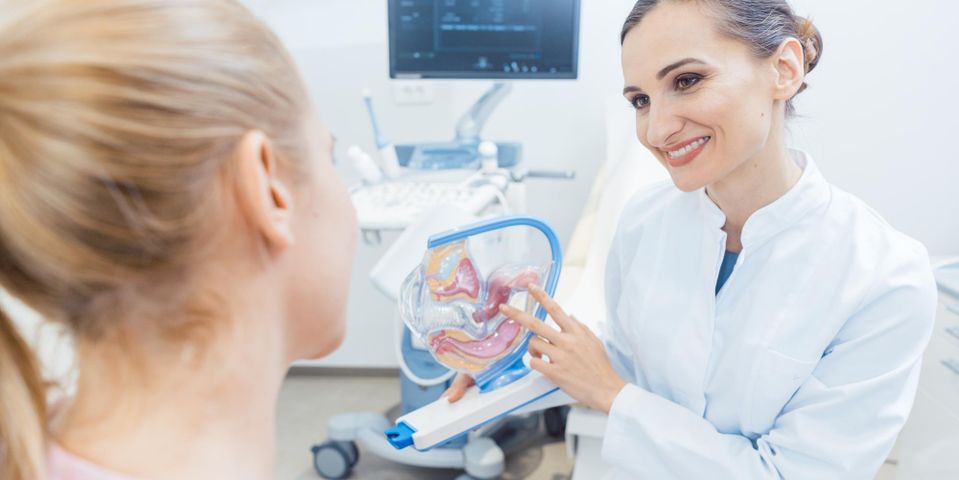4 Medical Conditions That Can Cause Female Infertility

As many as 10% of couples have fertility challenges , which can be attributed to a number of factors. Although age and certain lifestyle factors can make it harder for women to get pregnant, female infertility is often due to medical conditions that require a diagnosis and treatment from an OB-GYN provider. Here’s an overview of the some of the most common conditions.
4 Common Conditions That Lead to Female Infertility
1. Ovarian Disorders
To get pregnant, one of your ovaries needs to release an egg. Various disorders, such as polycystic ovary syndrome (PCOS), premature ovarian failure, and hormone disorders that cause your pituitary gland to create too much or too little of certain hormones can disrupt egg production.
Signs of these disorders include irregular or nonexistent menstrual periods as well as unexplained weight gain or loss. In the case of PCOS, look out for obesity, insulin resistance, acne, and abnormal hair growth on the face.
2. Endometriosis
 If you have extremely heavy or painful periods along with difficulty getting pregnant, your OB-GYN provider may suspect endometriosis. Endometriosis is a condition in which uterine tissue grows in locations outside of the uterus and needs to be surgically removed. This tissue removal can scar the Fallopian tubes and uterine lining, making it difficult for an egg to travel to and implant in the uterus after being fertilized. Endometriosis can also damage eggs and sperm.
If you have extremely heavy or painful periods along with difficulty getting pregnant, your OB-GYN provider may suspect endometriosis. Endometriosis is a condition in which uterine tissue grows in locations outside of the uterus and needs to be surgically removed. This tissue removal can scar the Fallopian tubes and uterine lining, making it difficult for an egg to travel to and implant in the uterus after being fertilized. Endometriosis can also damage eggs and sperm.
3. Tubal Infertility
Scar tissue from prior surgeries can damage the Fallopian tubes. For example, if you’ve previously had surgery for an ectopic pregnancy (a pregnancy that develops in the Fallopian tube itself), the scarring and damage may block future eggs from being released. Pelvic inflammatory disease, a reproductive system infection resulting from sexually transmitted infections, can also lead to scarring that affects fertility.
4. Uterine & Cervical Problems
Problems with the uterus or cervix can also cause infertility in women. For example, fibroids, which are benign tumors, can sometimes prevent a fertilized egg from implanting in the uterus. An abnormally shaped uterus or especially narrow cervix can impact your ability to get pregnant as well. Or your cervix may produce inadequate amounts of mucus, which helps sperm reach the egg to fertilize it.
These problems don't always cause infertility but can affect your ability to carry a pregnancy to term. If you do have these conditions and get pregnant, you may require extra care from an OB-GYN provider to manage your risk.
If you’re having trouble getting pregnant, the compassionate OB-GYN providers at Women’s Clinic of Lincoln, P.C., are here to help. Serving women in the Lincoln, NE, area, since 1973, this women’s clinic offers comprehensive health care services, including routine gynecological exams, infertility counseling, infertility evaluations, and fertility treatments. Visit their website to learn more about their offerings, and call (402) 434-3370 to schedule an appointment.
About the Business
Have a question? Ask the experts!
Send your question

